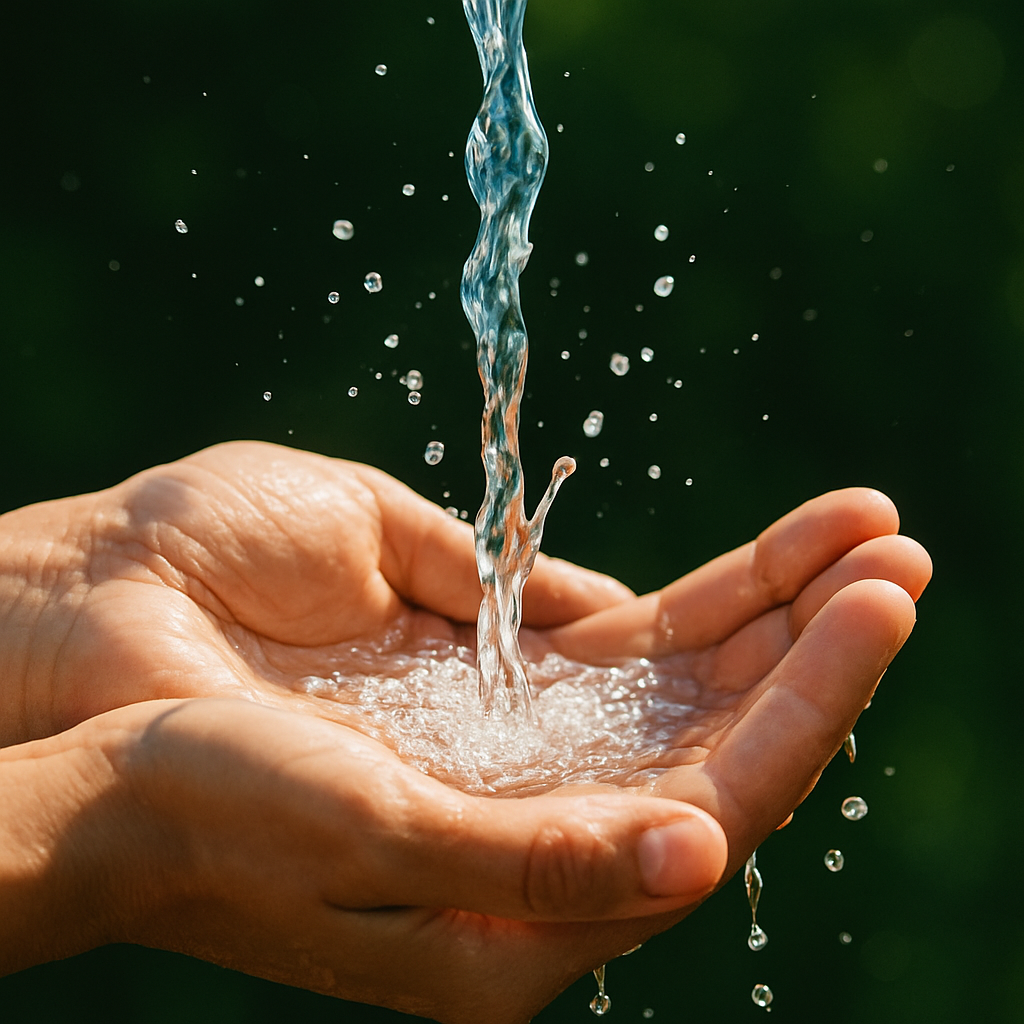
Water!
This week, we’re hosting the final student group as well as are facing water scarcity more seriously than ever... Nothing is more daunting than to witness the water levels drop down with our own eyes which is happening in our very environment now...
This week, we’re hosting the final student group of the season for their farming practice week, this time from the Csillagberek Waldorf School. As with previous groups, the students are fully engaged and throwing themselves into the rhythms of farm life. There’s a lot happening around them right now – including the construction of a new garage, which will eventually become the permanent home for our tractor.
As the days grow hotter and the rain continues to hold off, the issue of water scarcity becomes more pressing – not just for us, but for the entire country. The lack of rainfall is increasingly evident, and its impact is already being felt in both agricultural and natural ecosystems. The challenge of addressing this issue is compounded by the absence of a clear, coherent national water strategy – something that is absolutely essential for ensuring Hungary's long-term resilience and food security. Despite the urgency, there appears to be little political will or strategic foresight to take action on this front.
At the local level, however, we are doing what we can. We've previously shared some of our steps, such as transitioning to drip irrigation systems and adopting soil cultivation practices that improve the land’s ability to absorb and retain water. These are small but meaningful steps toward greater sustainability and resilience.
Unfortunately, we are also witnessing developments that point in the opposite direction. Just a few kilometers away, in Tura, we have new neighbors who have somehow managed to obtain permits for – and already installed – a series of five or seven deep wells, intended for irrigating arable land. This is deeply concerning. The large-scale extraction of groundwater through deep wells for field crops is neither sustainable nor justifiable. Not only does it threaten the long-term viability of drinking water supplies, but it is also an inefficient use of water in agriculture. If irrigation is to be used at all, it should be for horticultural production, where far more food can be grown per drop of water.
It’s clear that water will become one of the defining political and environmental issues of the coming years. While it may not capture headlines the way some other topics do, the truth is: without water, nothing else functions – not agriculture, not ecosystems, not communities. It is fundamental to life, and decisions made now will shape the future for generations to come.
Don’t despair, we can do some individually! What we can do is plant trees, trees, and more trees – and boycott food and ingredients produced by industrial agriculture, and choose smaller, local farms to source your food from. It really does matter what we choose – every small action does count in the end!
